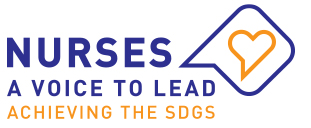Patient Centred Care, New Zealand
Every place is the right place for responding to the health needs of people.
In many countries, legislative barriers restrict health professionals from working to their full scope of practice. When New Zealand recently released a new health strategy which strongly emphasizes primary prevention and early intervention to ensure New Zealanders live well, stay well, get well, Dr Jane O’Malley, New Zealand’s Chief Nursing Officer, emphasized the need for the health workforce to be used to its maximum potential.
Dr O’Malley has been leading the way for a paradigm shift in the way that nurses have traditionally provided care in New Zealand. Her call to action, “every place is the right place for responding to the health needs of people” places patients and their communities at the centre of care and brings nurses’ wide range of practice to the forefront. The basis for her recommendations was the development of the full potential of the nursing profession by enabling nurses to practice to their full scope of practice.
At the heart of these reforms was the need to improve the health and wellbeing of individuals and communities as well as their access to appropriate medicines and treatment.
Two successful outcomes have recently come into effect. The first is the development of Registered Nurse prescribing; a regulatory change by which the Nursing Council of New Zealand can set the educational, experience, competence and supervision requirements to authorise registered nurses to prescribe.
The second is a legislative change that replaces the descriptor ‘medical practitioner’ in a number of Acts with the descriptor ‘health practitioners’. For nurse practitioners (NPs) and suitably qualified registered nurses, this means they will be able to perform functions for which formerly only physicians were legislated, for example, assess for and issue a fitness to drive certificate, issue a death certificate (restricted to NPs only), issue proof of sickness or injury certificates, make an application for assessment under the Mental Health Act, and prescribe controlled drugs for opiate addiction within a specialty team.

